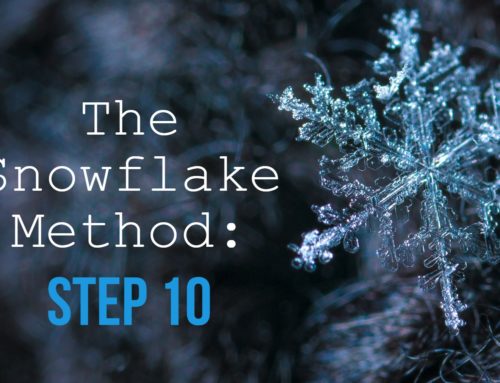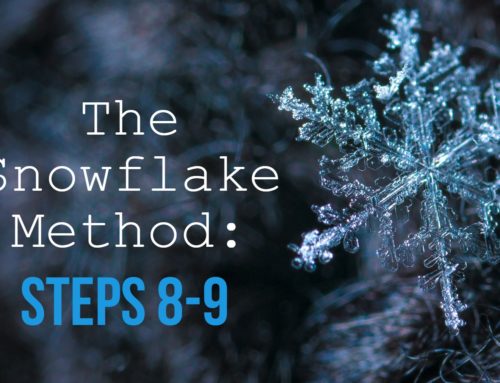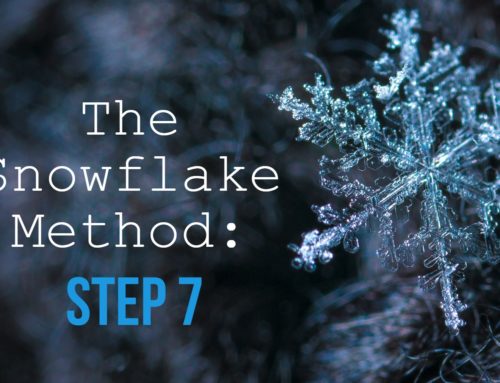I’ve stumbled upon something more challenging than writing an ending: choosing a title.
Titles represent anywhere from a few hundred to hundreds of thousands of words. They have to be worthy of all that hard work you put into your short story, novella or novel. And they must be marketable.
I’m almost never satisfied with my first stab at a title, so I slap a placeholder at the top of the page and move on. For those short stories that don’t inspire a second draft, what started as a temporary solution becomes permanent. (I’m looking at you, “Of Men and Monsters” and “The Unholy Grail.”)
Two of my better tales started out with very generic titles: “Dime Story” and “Virus Story.” The latter eventually became “Going Viral,” with which I’m reasonably satisfied. For a short time, I titled the former “Between Twilight and Dusk,” but at the end of the day (pun intended), the name didn’t really mean much.
I never got around to tweaking the title of “Dime Story” not only because I like that it sounds like “dime store,” an anachronistic reference to the main setting of the story, but also because I don’t think it’s publishable. Why bother wracking my brain for something better?
If short stories prove difficult to title, then naming novels is downright impossible. I struggled for a long time with the titles to the first three books of The Renegade Chronicles. At one point, I even considered naming them Genesis, Exodus, and Revelation. (Ugh.) The most recent drafts bear these labels: The Road to Faith, The Keepers of Faith, and Defenders of Valor.
Not horrible, but the first two still come off sounding like spirituality-themed nonfiction as opposed to sword-and-sorcery fantasy.
The best I could do for my fourth book—a prequel of sorts—was Magic’s Daughter. Surprise, surprise, there’s already a book (or two) by that name. And even if it weren’t unoriginal, I don’t find it especially inspiring. It lacks…verve.
Of course, the fact that book titles can’t be copyrighted leads to a lot of books sharing the same or very similar names. Type in “Nemesis” on Amazon.com, and you’ll find books by Isaac Asimov, Agatha Christie, Phillip Roth, and plenty of others.
Personally, I strive for novelty wherever I can, titles included. I also find that with books and movies with names borrowed from abstract emotions or situations don’t stick in my brain. I want to see the title.
So what comprises the perfect title? Well, it has to be appropriate—that is, make sense in some context with the story itself. It should be memorable (so that your reader can tell his/her friend about it…and preferably where he/she bought it). And, I daresay, it should be creative.
Oh, it doesn’t have to be frightfully clever, and it certainly shouldn’t be too cute. Take Stieg Larsson’s Millennium Trilogy. Is there anything more ordinary-sounding than The Girl with the Dragon Tattoo? And yet we instantly want to know more about her. Why does she have a tattoo of a dragon? Where is this tattoo? And what’s this I hear about her kicking a hornet’s nest and playing with fire?
We already see the titular character…or at least we think we do.
My problem is I overthink things. There’s probably nothing inherently wrong with “Magic’s Daughter,” as far as titles go. Perhaps picking the perfect title requires a bit of magic. Maybe it’s more instinct than science.
—Editor’s note: I ended up going with Magic’s Daughter.
While writing (and rewriting and reworking and…) a recent novel, I wrestled with the title every now and then, ultimately pushing off the Big Decision for another day. I flirted with Adrift for a while. It tied into one of the sleep phenomena featured in the book and also served as homage to one of my favorite TV shows, Lost.
Adrift?
Eh.
Then one day while reading a random passage, I came across a key quote penned by one of the characters: “If souls can sleep, then why not dream?” If souls can sleep…
Bingo.
Not only does If Souls Can Sleep summarize an underlying philosophy in the book, but also I love how the hypothetical nature of the “if” clause adds a hint of suspense. In hindsight, it wasn’t so much a “eureka!” moment as a “hey, this could work” thought. But the more I considered it, saying it aloud and pitting it against the test of time, the more convinced I became that there could be no other.
Now I find myself with a short story I intend to send to market. The working title—“The Villain”—still presides over the first page. I don’t hate it, but maybe there’s a better option…
That’s where you come in. Please take the poll below, and let me know which one sounds like a winner.
—Editor’s note: The poll is closed. Thanks for the votes! “Ghost Mode,” it is. Interested in reading the whole story? Go here.



I tend to start with a title and then write something to fit it, rather than the other way around. For your story, I think “Ghost Mode” is the best of he three. My titles are usually poetic sounding phrases that have little to do with content of the story (people are sure to ask me what “Cannibal Hearts” means and all I can say is that I like the sound of it) so if I were writing it I’d probably call it something like “The Dustman” or “The Missing Persons Waltz”.
I took a similar approach with “The Villain.” I knew the general setup and that there would be the hiring of a “villain.” Hence, “The Villain.”
I think your comments on the poetic approach supports my theory that it’s more of a “gut check” kind of thing — more of an art than a science. And the poetic approach has the added benefit of mystique.
Thanks for the vote!